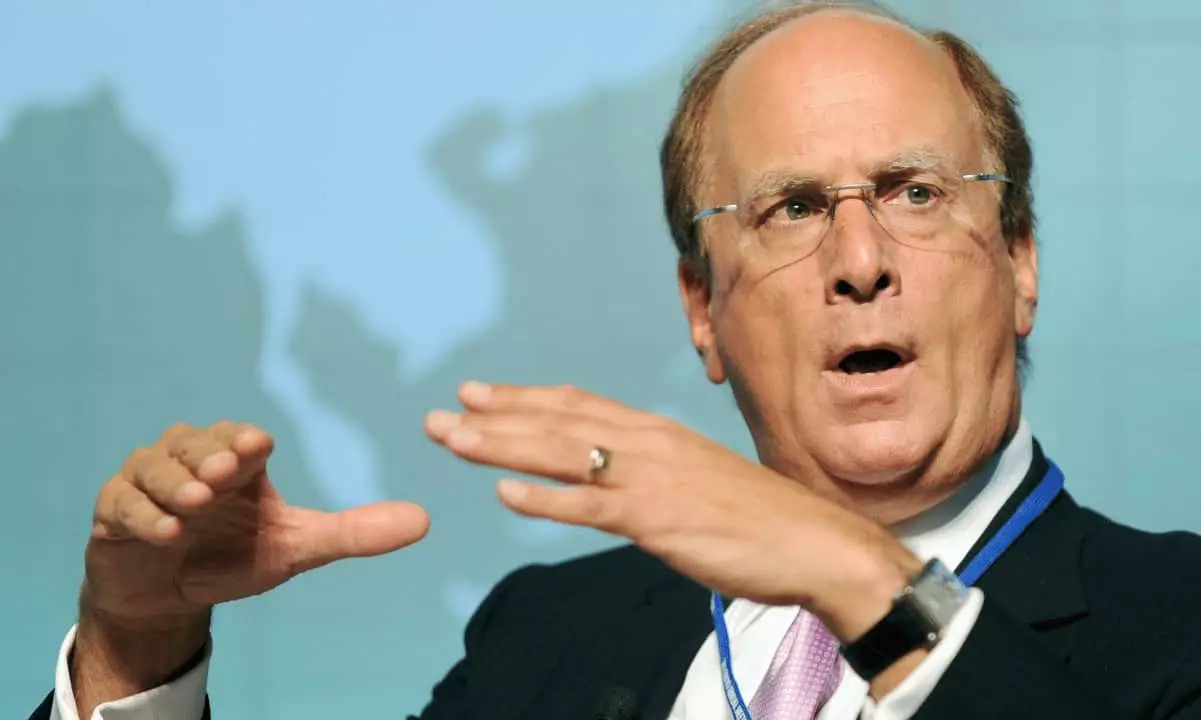Larry Fink, the CEO of BlackRock, has made notable statements about Bitcoin, positioning it as an emerging asset class comparable to gold. During a recent earnings call, Fink emphasized that Bitcoin is gaining recognition as not just a digital currency, but a legitimate alternative to traditional commodities. BlackRock, the largest asset manager in the world, is contemplating new allocation strategies regarding this cryptocurrency, signaling a pivotal shift in institutional investment perspectives. Fink’s assertion that Bitcoin can stand on its own merits mirrors historical shifts within financial markets, where new asset classes often require time to gain traction and credibility.
Fink’s insights highlight a crucial evolution in the digital asset landscape: the success of cryptocurrencies will depend on their inherent liquidity and transparency rather than merely on regulatory frameworks. This perspective suggests that while regulation is essential for fostering trust, the fundamental characteristics of digital assets will play a more decisive role in their market adoption. Fink compared the nascent crypto market to the expansive $11 trillion mortgage market, noting that initial resistance often gives way to broader acceptance as data analytics improve. This analogy serves as a reminder that many markets undergo transforming phases as participants gain better insights.
Fink’s discussion ventured into the realm of national digital currencies, particularly the potential introduction of a digital U.S. dollar. He referenced successful cases from countries like India and Brazil, where digitization of currency has already demonstrated promising benefits. By citing these examples, Fink underscores the importance of innovation in national monetary policy, suggesting that the future of finance could involve more digital transactions that are faster, safer, and more efficient, aligning with global trends toward increased digitization in various sectors.
A significant aspect of Fink’s forecast for the digital asset market includes the integration of artificial intelligence and advanced analytics. He posits that these technologies could catalyze the adoption and expansion of digital currencies, enhancing decision-making processes for investors and institutions alike. The combination of improved data and AI-driven insights could foster a better understanding of market dynamics, ultimately building investor confidence and encouraging further investment in the crypto space.
BlackRock’s positioning within the Bitcoin ecosystem has also been noteworthy, especially amidst a surge in spot Bitcoin ETF inflows. On October 14, the rapidly increasing popularity of these financial instruments was evident, with reported inflows of nearly $555.9 million. This uptick reflects growing institutional interest and acceptance of Bitcoin as a viable investment asset, a trend that BlackRock has been instrumental in shaping since launching its spot Bitcoin ETF earlier in the year. These movements within the financial markets suggest not only a growing acceptance of Bitcoin but also an evolving understanding of where it fits within a diversified investment strategy.
Fink’s comments and BlackRock’s strategic maneuvers indicate that Bitcoin is poised for significant growth as it transitions into a mainstream asset class. The ongoing development of reliable data infrastructure, regulatory frameworks, and innovative technology will be essential in steering this transformation, ultimately reshaping how digital assets are perceived and utilized in global finance.

